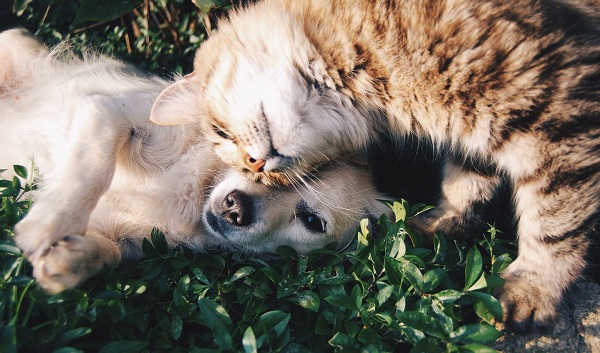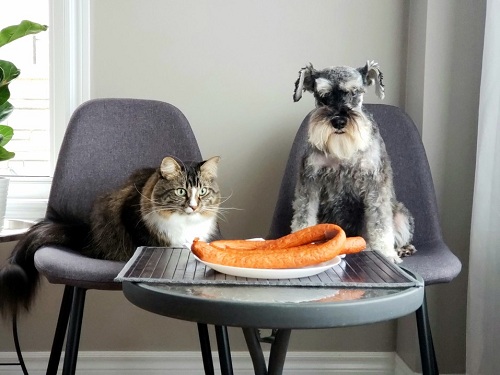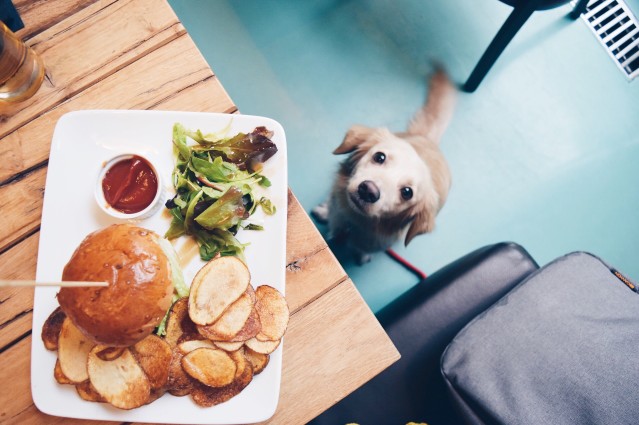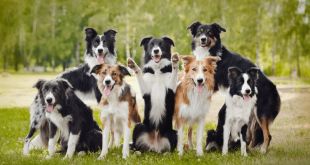The subject of dog and cat food and feeding, like any other, is brimming with myths. While some are old wives’ tales that have been around forever, others have spread as a result of widespread misinformation, and yet others are just benign and not-so-benign lies disseminated by businesses in the pet industry.
If you are a pet parent who isn’t quite sure what to believe and what to dismiss, here are 7 top myths and myth-busters about cat food and dog food that will put many doubts to rest:
Myths about Cat Food
Myth #1: Cats Love Milk
Truth: A great majority of cats are lactose-intolerant and simply do not have the enzyme in their intestines to digest the sugar in cows’ milk. Drinking milk could therefore result in stomach pain, diarrhea, and vomiting.
While not all cats will get an upset stomach from milk, it is best to serve your kitty milk only occasionally, in small quantities.
Myth #2: Wet Canned Foods makes Cats Fat, Causes Dental Problems
Truth: Actually it is dry food – with its high starch content and calories – that is likelier to fatten cats. With its high moisture, high protein, and low carbohydrate content, wet canned foods have several benefits including hydration and maintenance of healthy cellular membranes in your cat’s body.
Though food plays a marginal role in the formation of dental issues in cats, it is dry food that tends to get stuck between teeth, causing dental problems.
Myth #3: It’s Okay to Free Feed your Cat
Truth: While most cats like to free feed, free feeding shouldn’t translate into unmonitored and endless quantities of food. It is important to keep track of what you are feeding your pussycat, how much you are feeding, and how frequently they are eating. Uncontrolled free-feeding over time can easily cause health problems like obesity, diabetes, and arthritis in your feline fur baby.
Myths about Dog Food
Myth #1: All Human Food is Harmful to Dogs
Truth: Dogs have a digestive system that is different from that of humans. While it is true that some foods humans eat can be dangerous for dogs, others can supply the necessary nutrients that dogs need. Unless fried or heavily seasoned and spiced, foods like fish, white rice, blueberries, apples, carrots, cucumbers, and green beans are both tasty and nutritious for canines.
Myth #2: Dogs must stick to a Meat-based Diet
Truth: Dogs are omnivores, just like people, and actually require and benefit from the vitamins & minerals found in non-meat foodstuffs. These include fruits and vegetables, grains such as corn, rice, oats, and even dairy products having low to moderate lactose content.
Myth #3: Home-cooked Food is Healthier than Commercial Pet Food
Truth: Even if you are feeding your pooch home-cooked meals that contain a balanced mix of meats, grains, and veggies, a wholesome canine diet must be supplemented by additional vitamins, minerals, and fatty acids that only some commercial pet foods have.
If you still want your pet to stick to homemade meals, it’s best to consult a pet nutritionist for developing recipes that will meet all your dog’s nutritional needs.
Myth #4: All Bones are Good for Dogs
Truth: Though the all-bone loving dog is an enduring figure in popular culture, not all bones are safe for canines to eat. Cooked bones – particularly from table scraps – that may break and fragment can potentially harm the stomach and intestines as can commercially manufactured bone treats that are smoked or baked and contain added preservatives. Raw chicken, lamb, and beef bones with marrow make for tasty and nutritious treats for your doggo.
While some facts are true for all cats and dogs, pets too – like us – can be subject to exceptions. At the end of the day, our loving, furry BFFs count on us pet parents for everything and it is both in their interest and ours to dig up as much information as possible to make the healthiest food choices for them.

 DogExpress
DogExpress




















 in Chandigarh, India.
in Chandigarh, India. 
